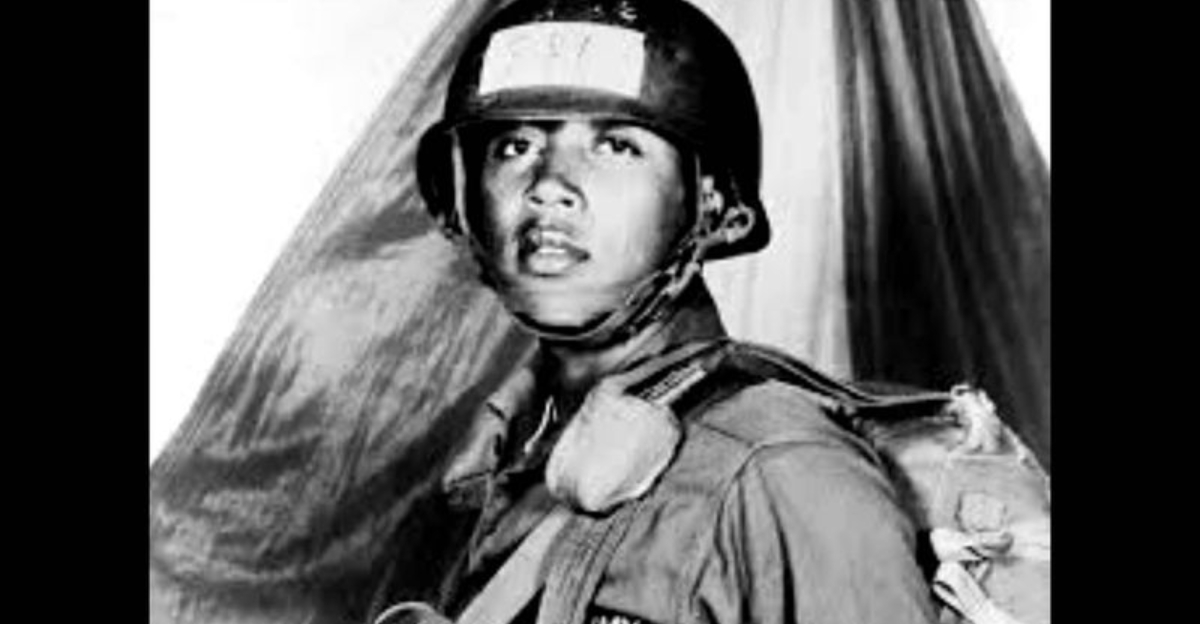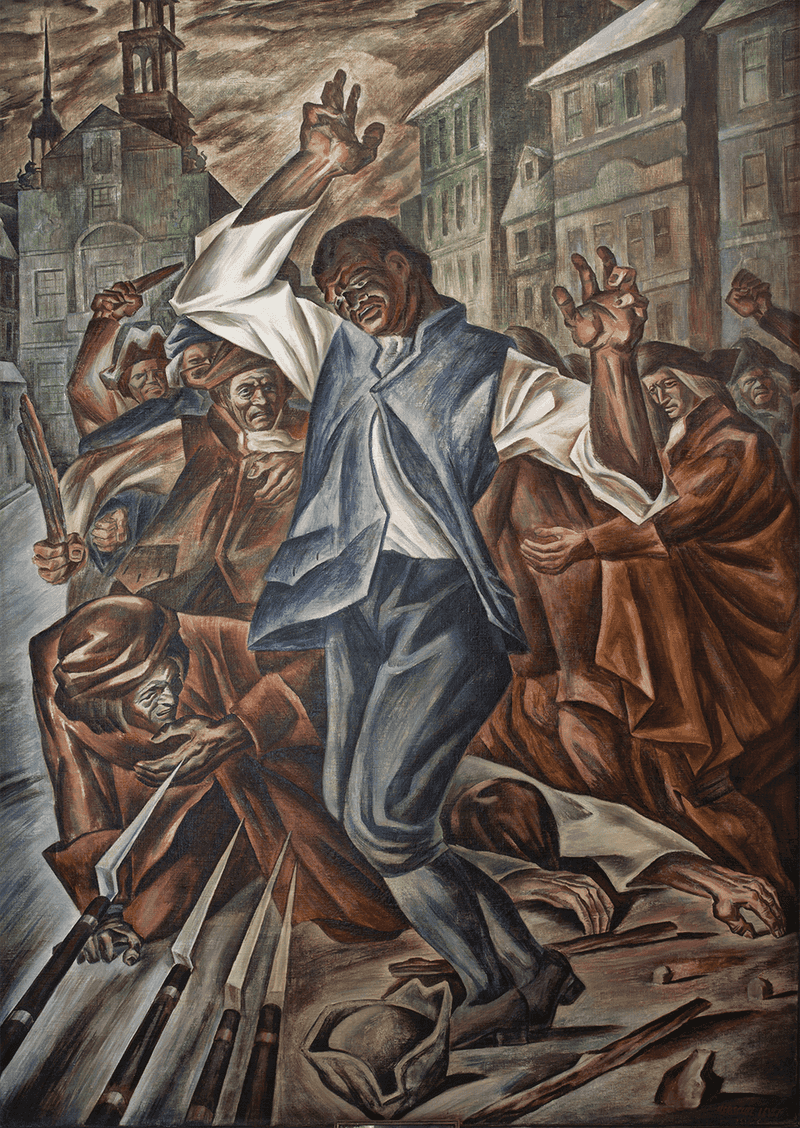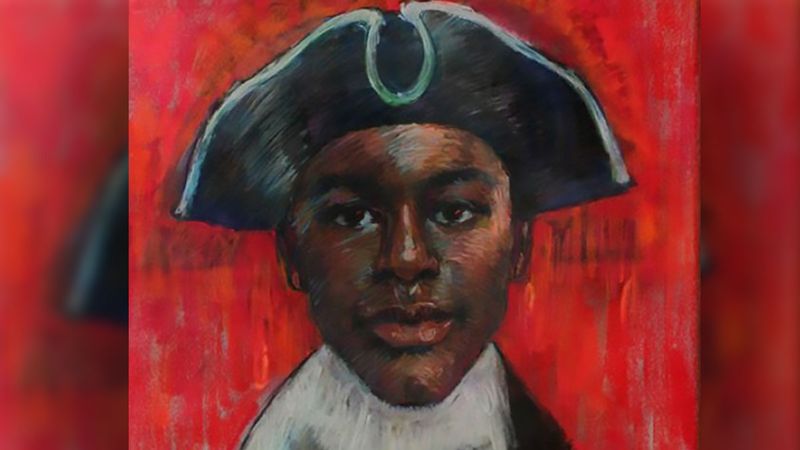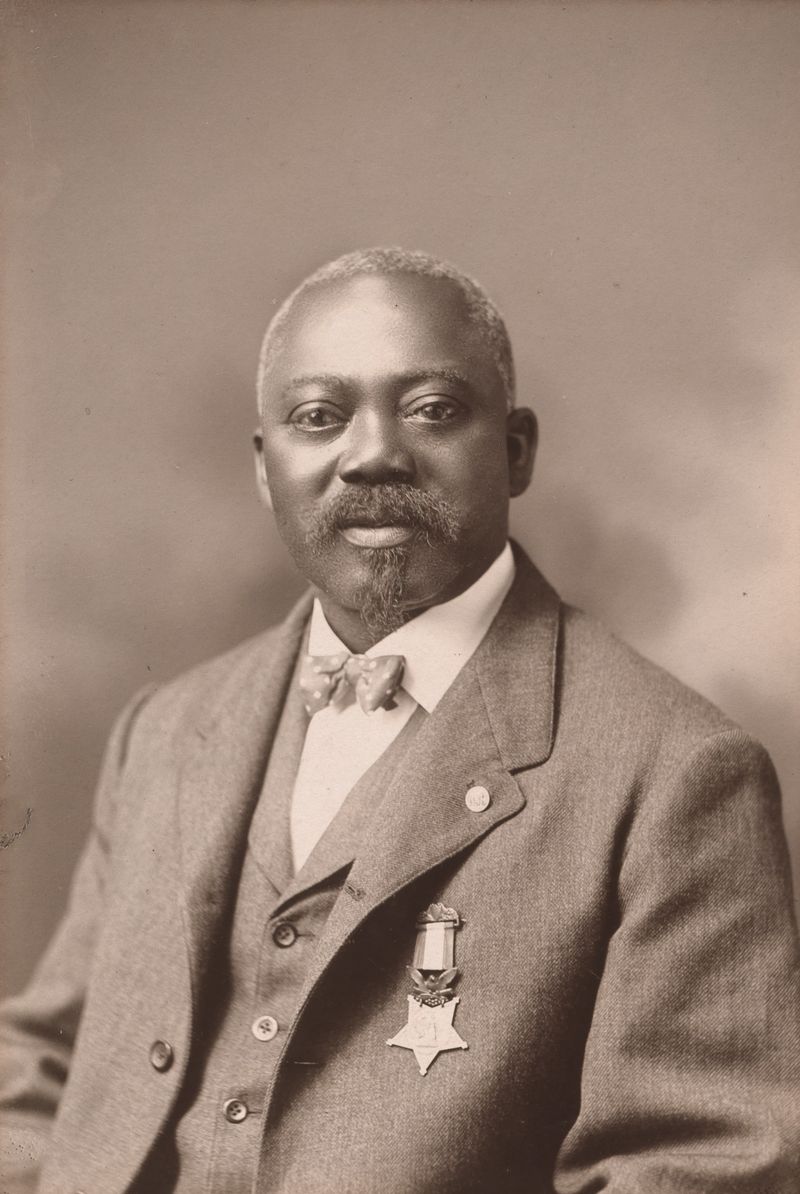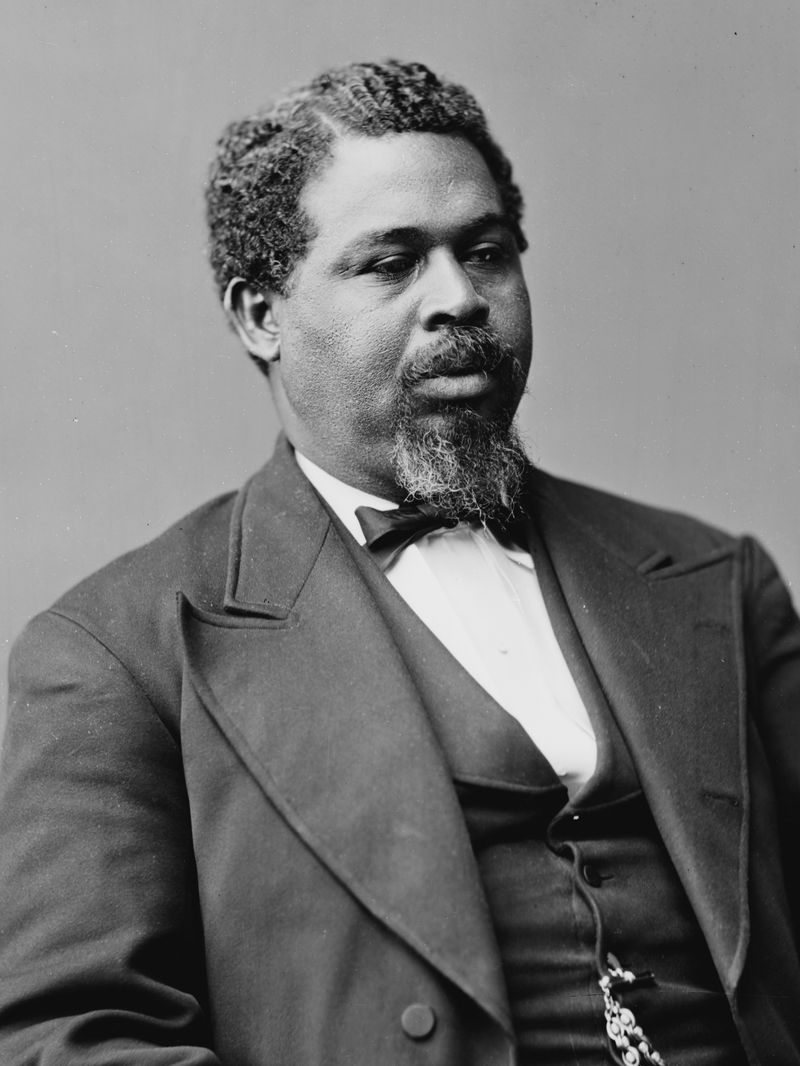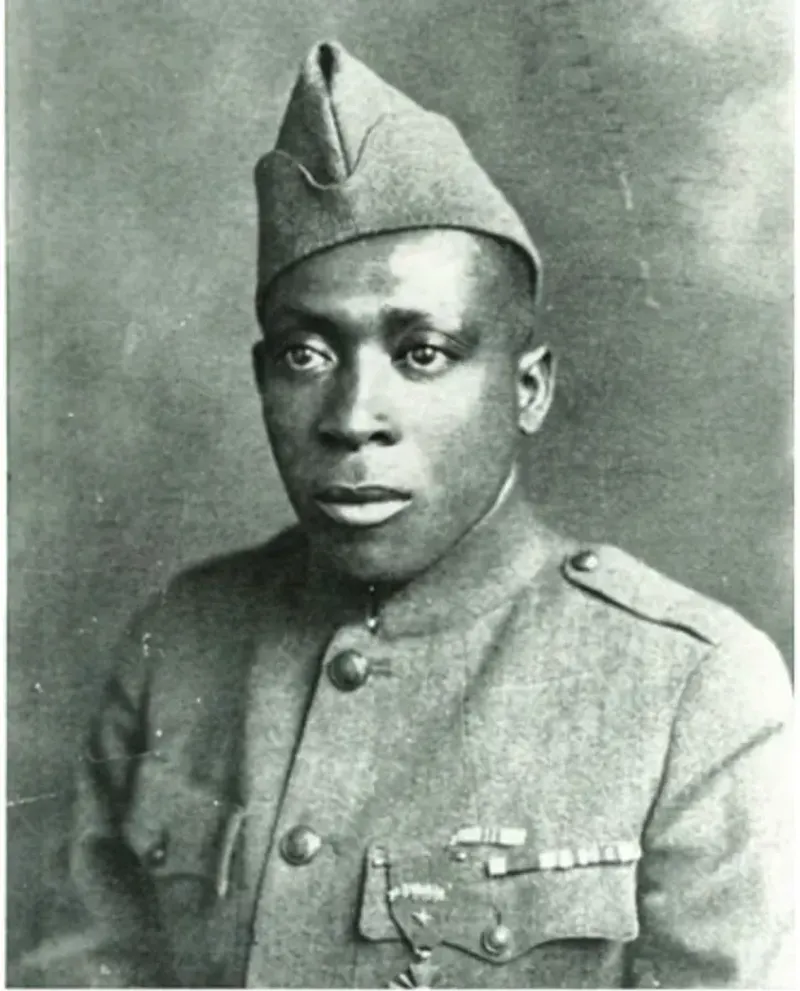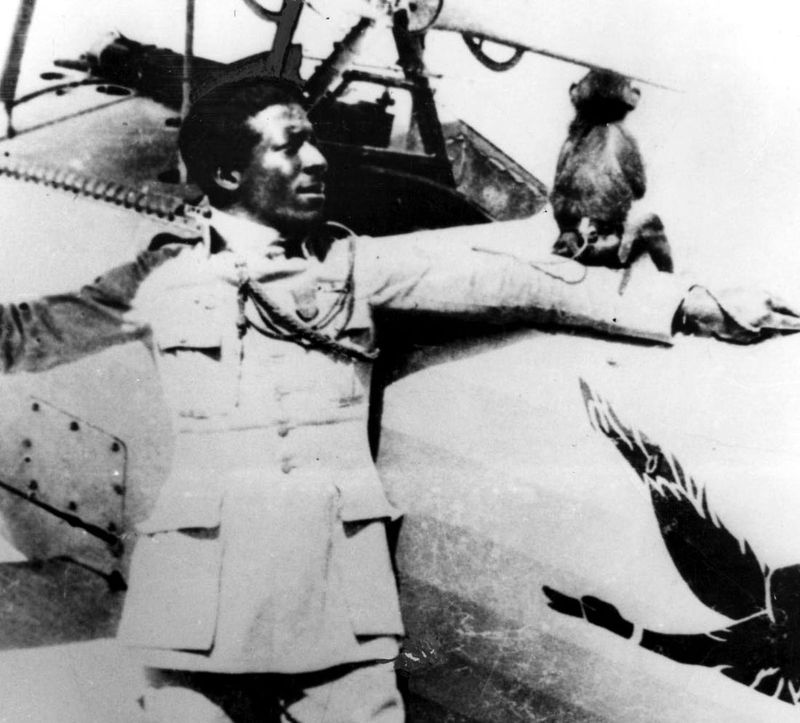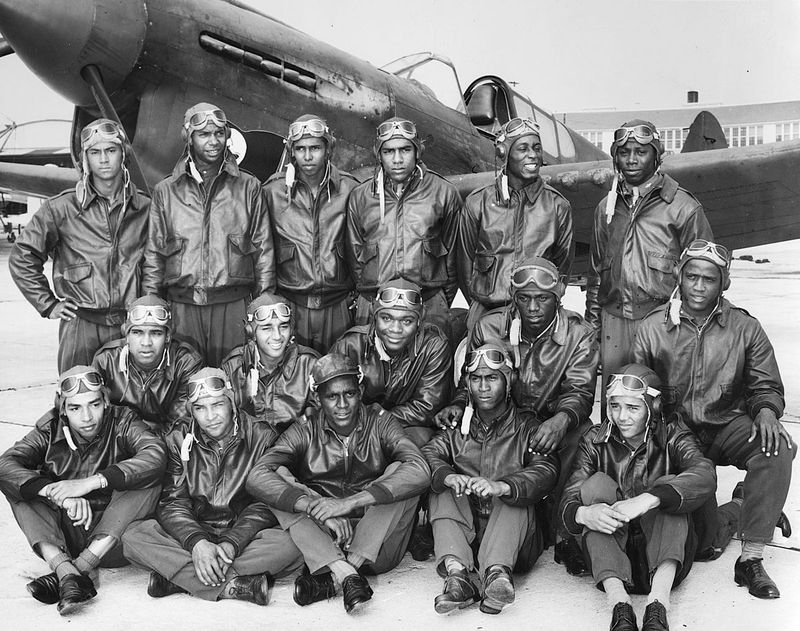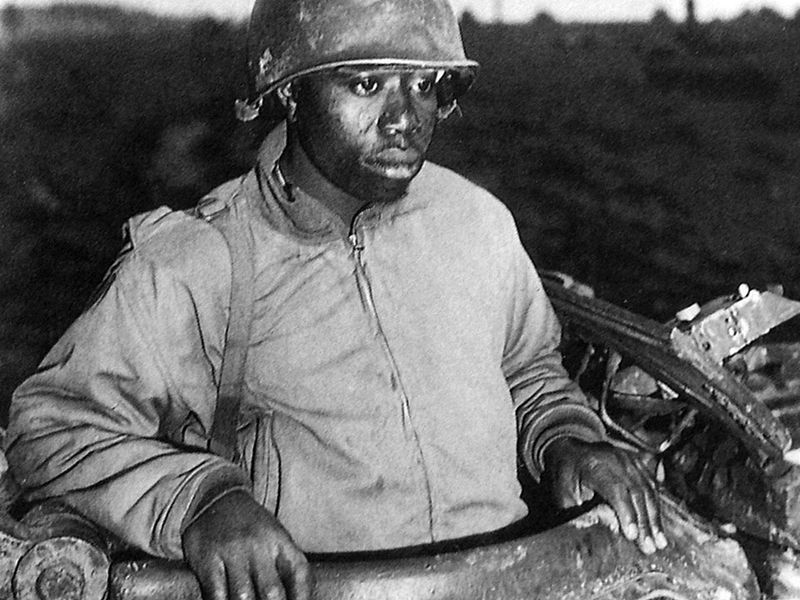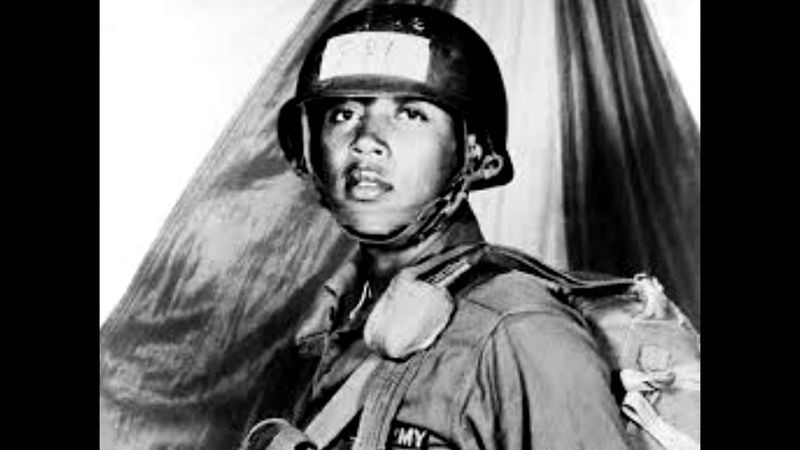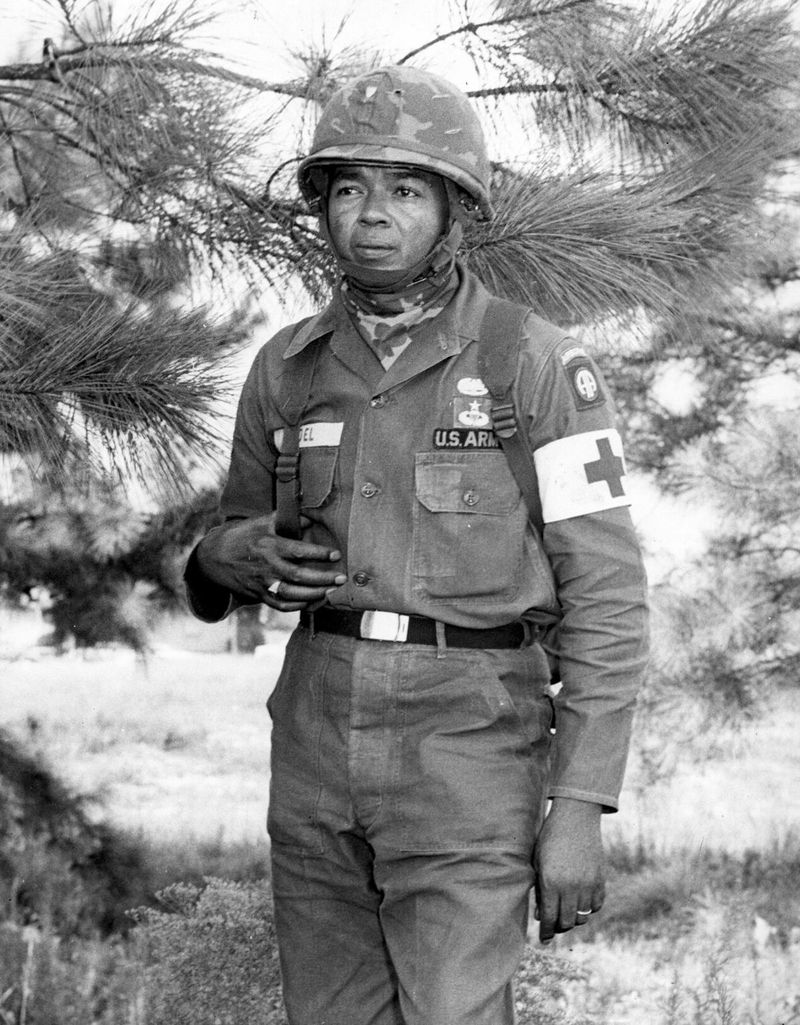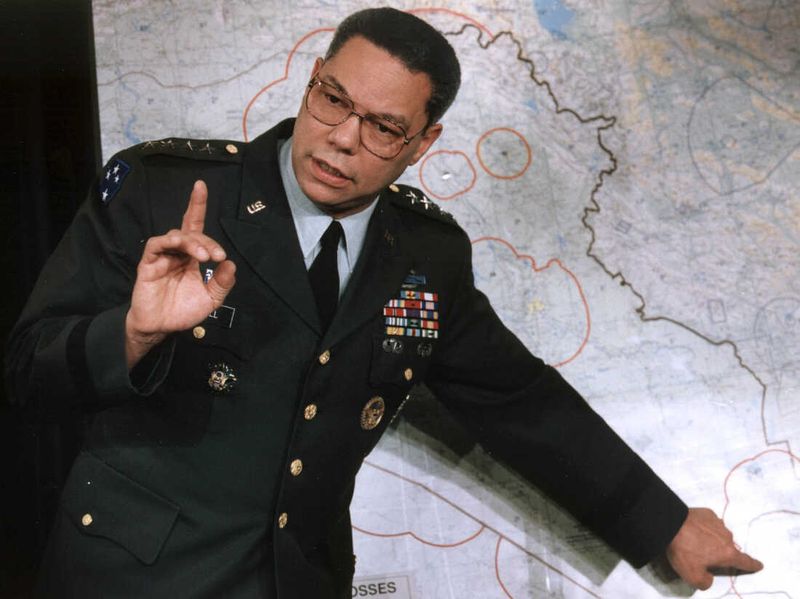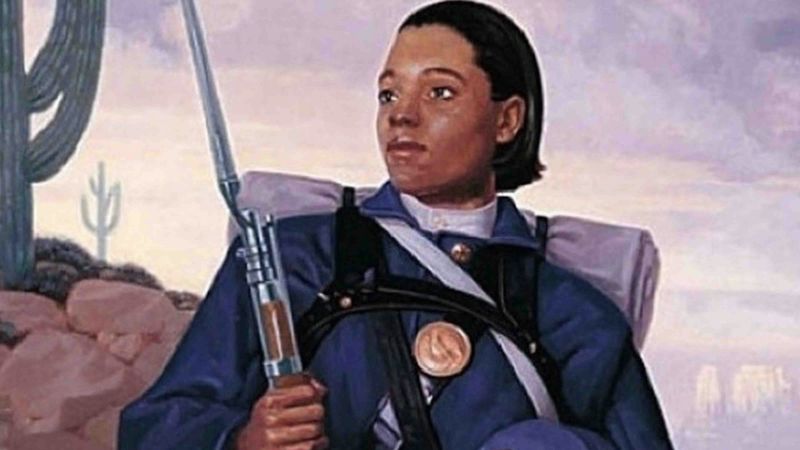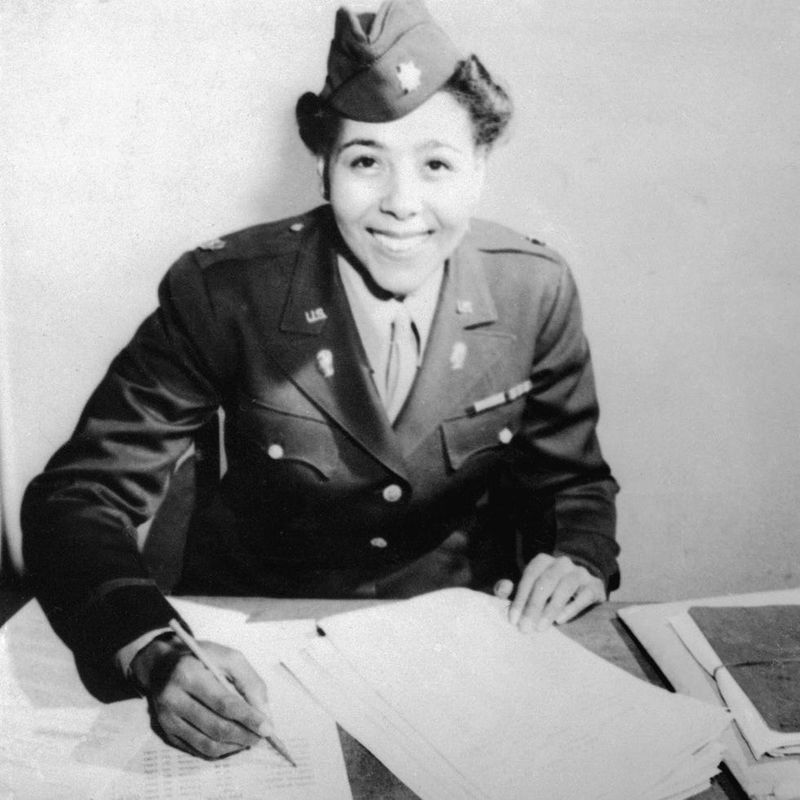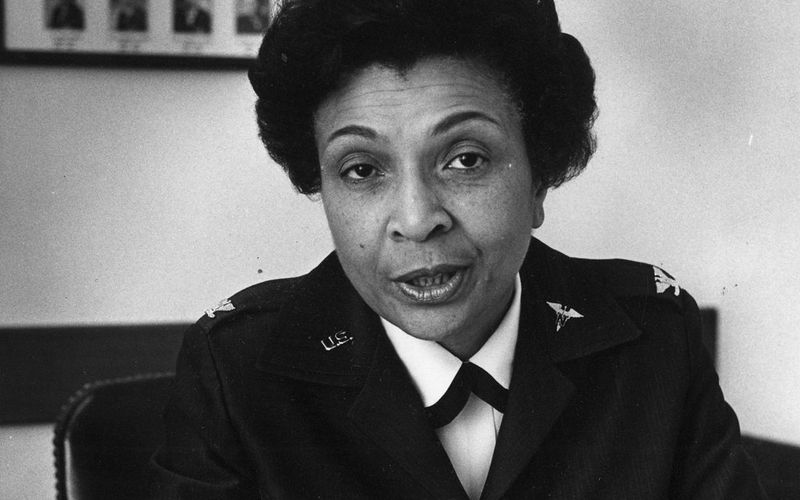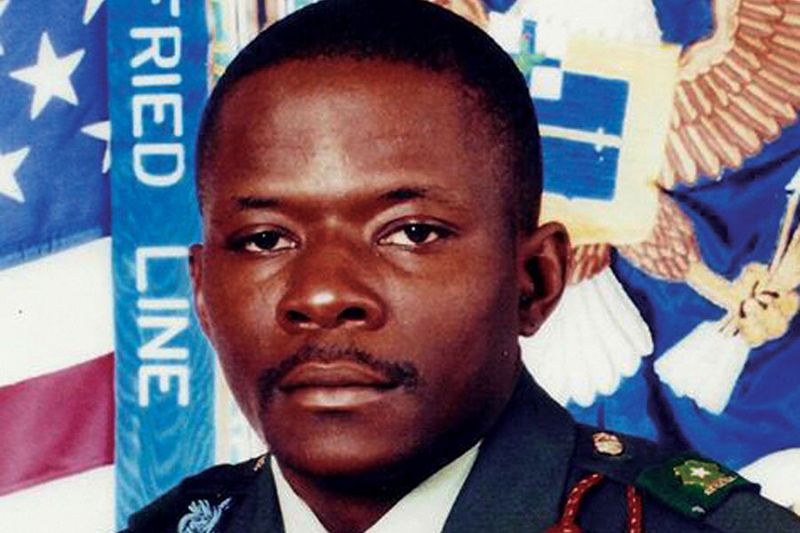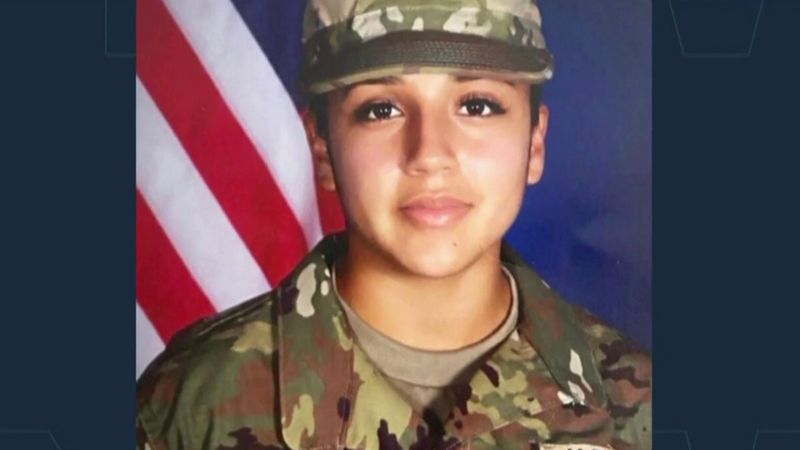Throughout American military history, Black soldiers have shown extraordinary courage despite facing both enemy forces and systemic racism. Their stories of valor and sacrifice have often been overlooked, yet their contributions proved essential to American freedom and security. From the Revolutionary War to modern conflicts, these 17 remarkable individuals didn’t just serve—they transformed our understanding of heroism while breaking barriers for future generations.
1. Crispus Attucks (1723–1770)
Freedom’s first martyr stood tall that fateful March evening in Boston. A former slave of African and Native American descent, Attucks led the crowd confronting British soldiers, becoming the first person killed in what would spark America’s fight for independence.
His death transformed him from an ordinary dockworker into a powerful symbol of resistance against tyranny. Though details of his early life remain mysterious, his final act of courage illuminated the path toward revolution.
When commemorating the Boston Massacre years later, John Adams acknowledged this unlikely hero’s supreme sacrifice that changed the course of history forever.
2. Peter Salem (1750–1816)
At the Battle of Bunker Hill, one shot changed the tide of war. Salem, born enslaved in Massachusetts, gained his freedom to fight for America’s liberty and delivered a pivotal moment in combat few could match.
As British Major John Pitcairn shouted “The day is ours!” while storming the colonial position, Salem’s precise musket fire struck the officer down. The British advance faltered, and Salem’s name entered the annals of Revolutionary heroism.
Despite his battlefield glory, Salem returned to a modest life after the war, working as a cane weaver in Massachusetts, his extraordinary contribution nearly forgotten by the nation he helped create.
3. William Harvey Carney (1840–1908)
“The old flag never touched the ground!” These words immortalized Carney’s extraordinary courage at Fort Wagner in 1863. Born into slavery, he escaped through the Underground Railroad before joining the famous 54th Massachusetts Infantry.
When the flag bearer fell during the assault, Carney grabbed the American colors despite being shot multiple times. He crawled back to Union lines, keeping the flag aloft throughout his agonizing journey, refusing to surrender it even while receiving medical treatment.
Though his Medal of Honor came nearly four decades later, Carney’s unwavering devotion to both freedom and flag remains one of the Civil War’s most stirring examples of battlefield valor.
4. Robert Smalls (1839–1915)
Midnight on Charleston Harbor, May 13, 1862. An enslaved ship pilot executed one of the Civil War’s most daring escapes. Smalls commandeered the Confederate transport ship Planter while its white officers slept ashore, navigating through Confederate checkpoints by mimicking the captain’s signals.
With his family and other enslaved people aboard, he delivered the vessel—and valuable intelligence—to Union forces. His audacious act earned him freedom and national fame.
Smalls didn’t stop there. He went on to serve five terms in Congress, fighting for equal rights during Reconstruction and becoming a powerful symbol of Black political leadership in the post-war South.
5. Henry Johnson (1897–1929)
Armed with just a knife and unimaginable courage, Johnson rewrote the rules of battlefield heroism one May night in 1918. As German raiders attacked his outpost in the Argonne Forest, the 5’4″ private from Albany fought like a giant.
With his French comrade wounded and ammunition exhausted, Johnson used his bolo knife, rifle butt, and bare hands against two dozen attackers. Suffering 21 wounds, he prevented the capture of his fellow soldier and repelled the entire German patrol single-handedly.
France immediately awarded him the Croix de Guerre, yet America withheld proper recognition until 2015—nearly a century later—when President Obama posthumously bestowed the Medal of Honor.
6. Eugene Bullard (1895–1961)
The son of a former slave soared above the racism of his era—literally. After fleeing Georgia at age 11 to escape racial violence, Bullard made his way to France where he found the equality America denied him.
When World War I erupted, he initially joined the French Foreign Legion, then transferred to aviation. With 20 confirmed aerial victories, Bullard’s skill in the cockpit earned him France’s highest military honors while shattering racial barriers in aviation.
Returning to America after the war, he found his achievements ignored and was forced to work as an elevator operator—the same man who once commanded the skies reduced to pushing buttons for those who wouldn’t acknowledge his greatness.
7. Doris “Dorie” Miller (1919–1943)
Pearl Harbor’s chaos revealed an unexpected hero. Miller, a mess attendant restricted to serving food due to Navy segregation policies, transformed into a warrior when Japanese planes attacked on December 7, 1941.
Without hesitation, he carried wounded sailors to safety, including the mortally injured captain. Then, despite never receiving weapons training, Miller manned an anti-aircraft gun, reportedly downing several enemy planes during the two-hour assault.
His courage earned him the Navy Cross—the first awarded to a Black sailor—though many argued he deserved the Medal of Honor. Miller’s story inspired countless Americans before his death two years later when a Japanese torpedo sank his ship in the Pacific.
8. The Tuskegee Airmen (1940s)
Red tails in the sky meant bombers would survive. These pioneering Black aviators, trained at segregated Tuskegee Army Airfield in Alabama, shattered both enemy aircraft and racial stereotypes during World War II.
Flying more than 15,000 sorties over Europe and North Africa, the Tuskegee Airmen established an unparalleled record—not a single bomber under their escort was lost to enemy fighters. Their distinctive red-tailed P-51 Mustangs became symbols of excellence and protection for grateful bomber crews.
Beyond their combat achievements, these 996 pilots and thousands of support personnel forced the military to reconsider its discriminatory policies, ultimately helping pave the way for armed forces integration in 1948.
9. Ruben Rivers (1918–1944)
“I’ve got a job to do.” With these simple words and a shattered leg, Rivers refused evacuation during the Allied push through France. The sergeant from Oklahoma exemplified the fighting spirit of the all-Black 761st Tank Battalion—nicknamed the “Black Panthers.”
After his tank hit a mine, Rivers continued leading his platoon despite excruciating pain. Days later, facing German tanks with superior firepower, he held position while others retreated, sacrificing his life to protect fellow soldiers.
His commander immediately recommended him for the Medal of Honor, but institutional racism delayed this recognition until 1997—fifty-three years after Rivers’ final act of extraordinary courage.
10. Milton L. Olive III (1946–1965)
“It’s all over, Milton’s gone.” A squad leader’s anguished radio call marked the moment a teenage soldier from Chicago made the ultimate sacrifice in Vietnam’s jungle. Olive was just 18, barely out of high school, when he faced an impossible choice.
While on patrol near Phu Cuong, an enemy grenade landed among his platoon. Without hesitation, Olive threw himself onto the explosive, absorbing the deadly blast with his body to save his four comrades.
President Johnson, presenting Olive’s family with the Medal of Honor, noted: “In dying, he taught those of us who remain how we ought to live.” Chicago later named a park after its young hero—a place where children play safely because of one soldier’s selfless act.
11. Lawrence Joel (1928–1984)
Bullets couldn’t stop this medic’s mission of mercy. During a vicious ambush in Vietnam’s jungle on November 8, 1965, Joel’s battalion suffered massive casualties. Despite being wounded twice himself, he refused evacuation.
For over 24 hours, Joel moved through intense enemy fire, treating the injured and offering comfort to the dying. When his medical supplies ran out, he improvised with bamboo to create splints and used his own uniform to make bandages.
His extraordinary compassion under fire earned him the Silver Star and Medal of Honor—becoming the first living Black soldier since the Spanish-American War to receive America’s highest military decoration. Winston-Salem, his hometown, later named a coliseum in his honor.
12. Colin Powell (1937–2021)
From South Bronx to the Pentagon’s highest office, Powell’s remarkable journey redefined military leadership. The son of Jamaican immigrants began as an ROTC cadet, served two combat tours in Vietnam, and steadily rose through ranks often closed to Black officers.
His strategic brilliance during the Gulf War as Chairman of the Joint Chiefs of Staff—the first African American to hold this position—showcased both military excellence and diplomatic skill. Powell developed the “Powell Doctrine” emphasizing overwhelming force and clear objectives to minimize casualties.
Later becoming the first Black Secretary of State, his four-star legacy inspired generations of service members who saw in Powell proof that talent and determination could overcome systemic barriers.
13. Cathay Williams (1844–1893)
History remembers her as “William Cathay”—the only documented female Buffalo Soldier. Born into slavery in Missouri, Williams gained freedom during the Civil War and worked as a laundress for Union troops, witnessing battlefield realities firsthand.
In 1866, facing limited opportunities as a free Black woman, she made an extraordinary decision. Williams disguised herself as a man and enlisted in the 38th Infantry Regiment, serving for two years before illness led to the discovery of her true identity.
Despite frequent hospitalizations during her service, Williams managed to keep her secret from military doctors until her discharge. Her groundbreaking story remained largely forgotten until researchers rediscovered this remarkable pioneer who refused to accept the limitations society placed on her.
14. Charity Adams Earley (1918–2002)
“No mail, low morale.” This motto drove Lieutenant Colonel Earley as she commanded the first all-Black female battalion in U.S. military history. The 6888th Central Postal Directory Battalion faced a seemingly impossible task in 1945—a backlog of 17 million pieces of undelivered mail for American troops in Europe.
Working in shifts around the clock in cold, dimly lit warehouses, Earley’s 855 women processed up to 65,000 pieces daily. They completed their six-month assignment in just three months, connecting soldiers with crucial messages from home.
A mathematics graduate and former teacher, Earley battled both Nazi Germany and military segregation, once famously standing her ground against a white general who threatened to send a “white officer” to take command.
15. Hazel Johnson-Brown (1927–2011)
From being rejected by her hometown nursing school because of her race to becoming the first Black female general in U.S. history, Johnson-Brown’s journey epitomized perseverance. Her historic 1979 promotion came with command of the 7,000-member Army Nurse Corps—an extraordinary achievement for someone once told she couldn’t even enter nursing training.
Johnson-Brown’s military career spanned Vietnam, Japan, and numerous stateside posts where she revolutionized Army medical training. Her leadership philosophy centered on excellence regardless of circumstances.
“Race is an accident of birth,” she once remarked. “I hope the criterion for selection didn’t include race but competence.” After retirement, she continued breaking barriers in nursing education at George Mason University.
16. Alwyn Cashe (1970–2005)
Engulfed in flames but refusing to leave his men behind, Cashe demonstrated superhuman courage on an Iraqi road in October 2005. When his Bradley Fighting Vehicle struck an IED and erupted in fire, the Sergeant First Class was initially only slightly injured and escaped the burning vehicle.
Realizing his soldiers remained trapped inside, Cashe repeatedly returned to the inferno, pulling each man to safety while his fuel-soaked uniform burned. With burns covering 72% of his body, he insisted on being the last evacuated from the battlefield.
Cashe survived three agonizing weeks before succumbing to his injuries. His Medal of Honor, finally awarded in 2021 after years of advocacy, recognized one of the Iraq War’s most selfless acts of valor.
17. Vanessa Guillén (1999–2020)
Her tragic death became a powerful catalyst for military reform. Specialist Guillén, a 20-year-old Houston native of Mexican-American heritage, joined the Army with dreams of serving her country, only to face harassment that went unaddressed by her chain of command.
After her murder by a fellow soldier at Fort Hood, her family’s relentless pursuit of justice exposed systemic failures in how the military handled sexual harassment and assault cases. The resulting public outrage forced unprecedented congressional scrutiny.
The I Am Vanessa Guillén Act, signed into law in 2021, fundamentally changed military justice procedures, removing commanders from sexual assault investigations and creating greater protections for service members. Her legacy lives on in these vital reforms.
